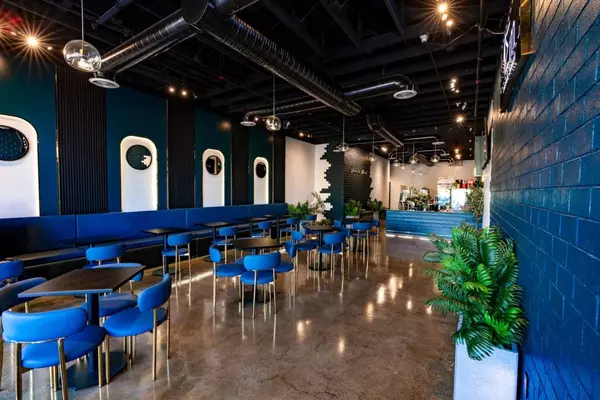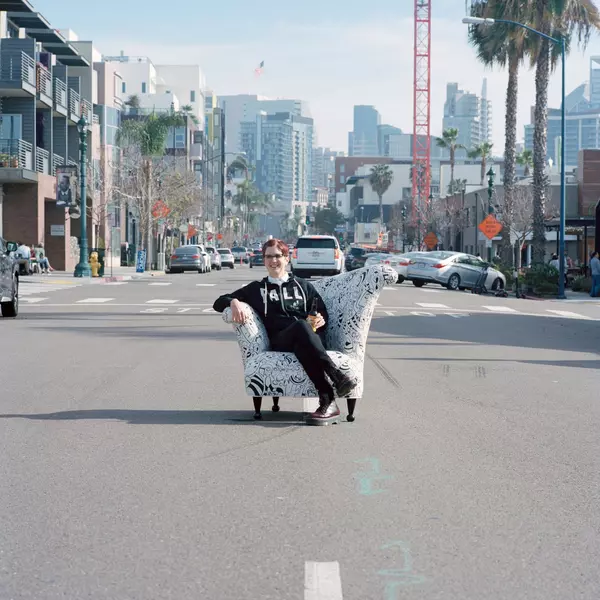Should San Diego lease the Kettner and Vine warehouse for a homeless shelter?
City leaders have yet to come to terms on a 30-year lease agreement to convert the empty warehouse at Kettner Boulevard and Vine Street into a large homeless shelter, as proposed by Mayor Todd Gloria.
With the deal, the city would lease the 65,000-square-foot facility for a 1,000-bed shelter, called The Hope @ Vine Campus. The mayor has framed the proposal as a bold move to tackle homelessness, with the facility designed to help people reintegrate into society.
As proposed, rent would start at $1.95 per square foot a month — or $1.5 million for the first year — and increase 3.5 percent each year. Rent does not include building operating expenses, which the city estimates at $32,469 a month.
The city is also budgeting more than $18 million to get the space ready for occupancy, with renovation and repair work extending to major building systems.
The San Diego City Council recently put off a decision on the real estate deal, flagging concerns about deal terms, potential liability, ongoing funding of shelter services and proper due diligence.
The City Attorney’s Office said in a report that the lease, as is, “does not adequately protect the city’s legal or financial interests.”
Q: Should San Diego lease the Kettner and Vine warehouse for a homeless shelter?
Economists
Lynn Reaser, economist
NO: There are shades of 101 Ash St. The 1963 building may well have lead and asbestos problems. Before starting, the site needs to certified for fire safety standards as to whether 1,000 people can be housed there. Building systems are old, tired and neglected. Food preparation, dining areas and sanitation systems are needed. In all — there’s not much quality of life for the mass of people crammed into 65,000 square feet with minimal privacy.
This will be Lynn Reaser’s final Econometer. She died Tuesday. She was a nationally revered economist but still took time to comment on the San Diego affairs of the day. We will miss her deeply. Read our story about her life here.
Alan Gin, University of San Diego
NO: At least not at the proposed terms. Summing up the projected rent shows that it is much higher than the most recent purchase price, meaning simply buying the property might be a better option. On top of that, whether a large facility is desirable or not is uncertain. While there would be economies of scale in running a large facility, there may be negative consequences in concentrating many homeless people in one place, including causing some homeless people not to want to use the facility.
James Hamilton, UC San Diego
NO: The core problem is substance abuse and mental illness, not a shortage of beds. We need to clearly delineate that camping on a public sidewalk is prohibited and that offenders will be forced to receive treatment for their underlying problems. I’m very much in favor of a big commitment of funds to make sure we have a place to help the people who need it. But building shelters without providing support and enforcement is not going to solve the problem.
Norm Miller, University of San Diego
NO: We desperately need a large-scale homeless shelter, but the comps used to justify the rent are excessive for an old warehouse. While there are some nice features in the lease like landlord tenant improvements of $5 million, 14 percent rebate flip fees and 19 months free, this deal has a present value of $23 million to $28 million or as much as $430 per square foot while a similar property sold for $358 per square foot. Go back to the negotiating table one more time please.
David Ely, San Diego State University
NO: The city’s Independent Budget Analyst report notes several areas of concern, including lease terms that appear to be above market rates, the funding of annual operating costs over the lease’s 30-year life and the building’s condition. It would be imprudent to approve the current version of the proposal. Establishing a large permanent homeless shelter represents a significant financial commitment for the city. Additional analysis is needed before a decision is made to move forward.
Ray Major, economist
NO: Too many unanswered questions remain regarding the project that could lead to serious real estate and financial liabilities for the city, especially given the 30-year commitment to the site. Homelessness is a crisis in our region that must be quickly addressed, but more work and analysis are needed before this proposal is approved.
Executives
Phil Blair, Manpower
YES: Of course assuming the negotiations go well and the city does not overpay. Echoes of 101 Ash St. The location seems prime, away from residential and tourist areas. The city needs to be bold in relocating up to a thousand homeless people in one spot, which seems more cost-effective then spreading the facilities all over town.
Gary London, London Moeder Advisors
NO: This is a purely real estate analysis response. I am not weighing in on whether this is the right approach or the right location. I recommend, based on my analysis, that the city can do significantly better. In fact, compared to these terms, the better approach would be for the city to purchase the building. I recommend that the city slow walk this deal and bring in experts who can rightsize the terms.
Bob Rauch, R.A. Rauch & Associates
NO: A better answer to the homeless crisis is the Sunbreak Ranch concept. It would serve as a central navigation center designed to house people, identify their needs, and move them with care and proper treatment to more permanent housing or treatment centers. It is not site-specific; it would be an emergency “triage center” where everyone in need would have a clean, healthy, safe, secure place and bed. It would be a solution, not a Band-Aid.
Austin Neudecker, Weave Growth
YES: “The Hope” proposal for a homeless shelter must be reworked. The city should determine if it has adequate funds, is paying a reasonable lease, is protected from liability and can identify a capable operator. Otherwise, there will always be objections to proposed shelters. This location is less likely to impact residents near the industrial corridor between Interstate 5 and the airport. I appreciate attempted action toward the crisis. These issues are solvable and the project is needed.
Jamie Moraga, Franklin Revere
NO: There are too many unknowns and more due diligence needs to be conducted. The proposed lease has several red flags. Currently there are no identified funding sources. Committing to a 30-year lease is a lengthy financial and legal commitment. And no current city homeless providers have managed a facility of this magnitude. With upfront costs in the millions and at an estimated cost of $30 million a year to operate, the proposed lease as it stands is a significant risk to taxpayers.
Haney Hong, San Diego County Taxpayers Association
NO: This lease deal is about as sound as a screen door on a submarine. It’s yet another attempt by the city to add to its long list of real estate blunders, eroding taxpayers’ confidence in its ability to make sound decisions. The rent is above market rate, the shelter identification process raises eyebrows, the lease favors the landlord at the expense of taxpayers, contradicts the Community Action Plan on Homelessness, and the list goes on and on.
Not participating this week:
Chris Van Gorder, Scripps HealthKelly Cunningham, San Diego Institute for Economic ResearchCaroline Freund, UC San Diego School of Global Policy and Strategy
Have an idea for an Econometer question? Email me at phillip.molnar@sduniontribune.com. Follow me on Threads: @phillip020
Categories
Recent Posts










GET MORE INFORMATION


